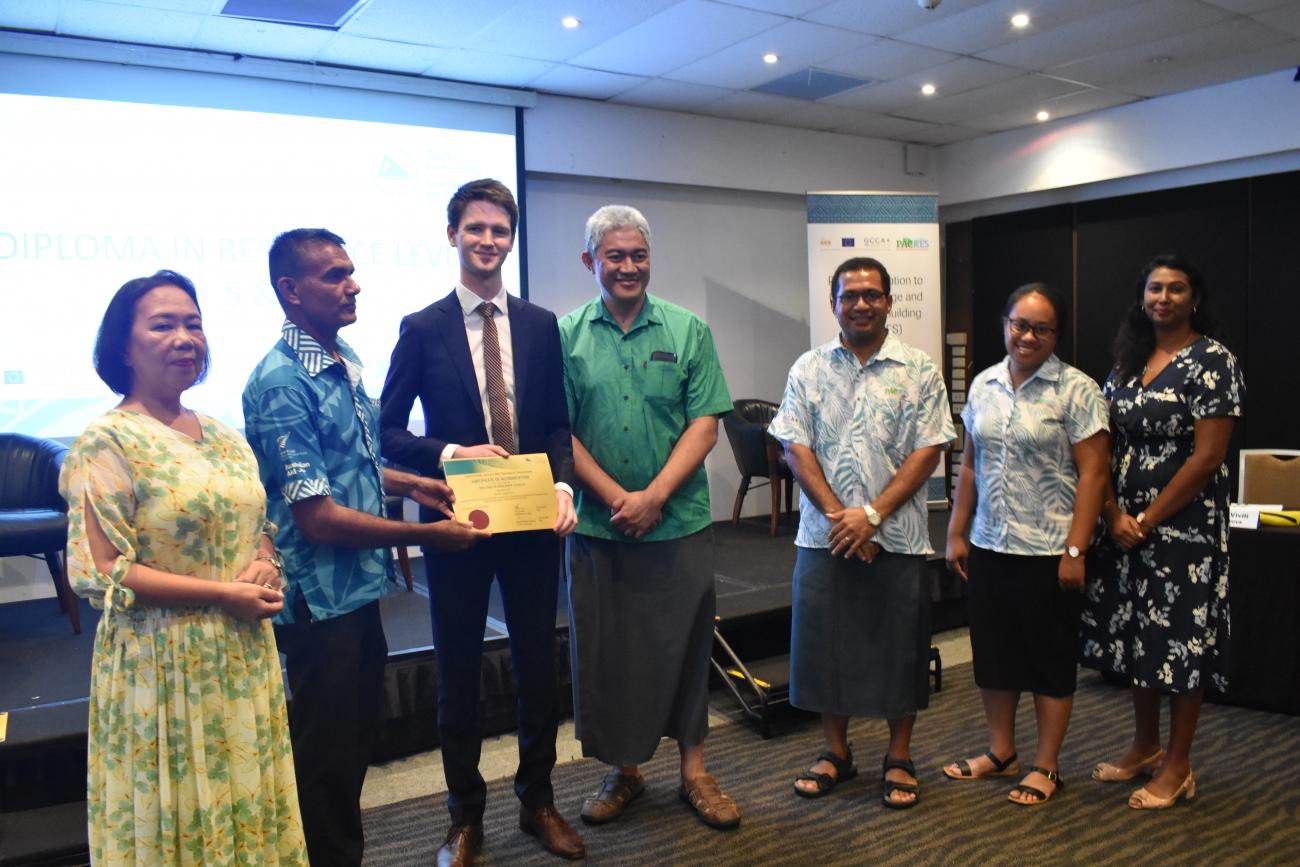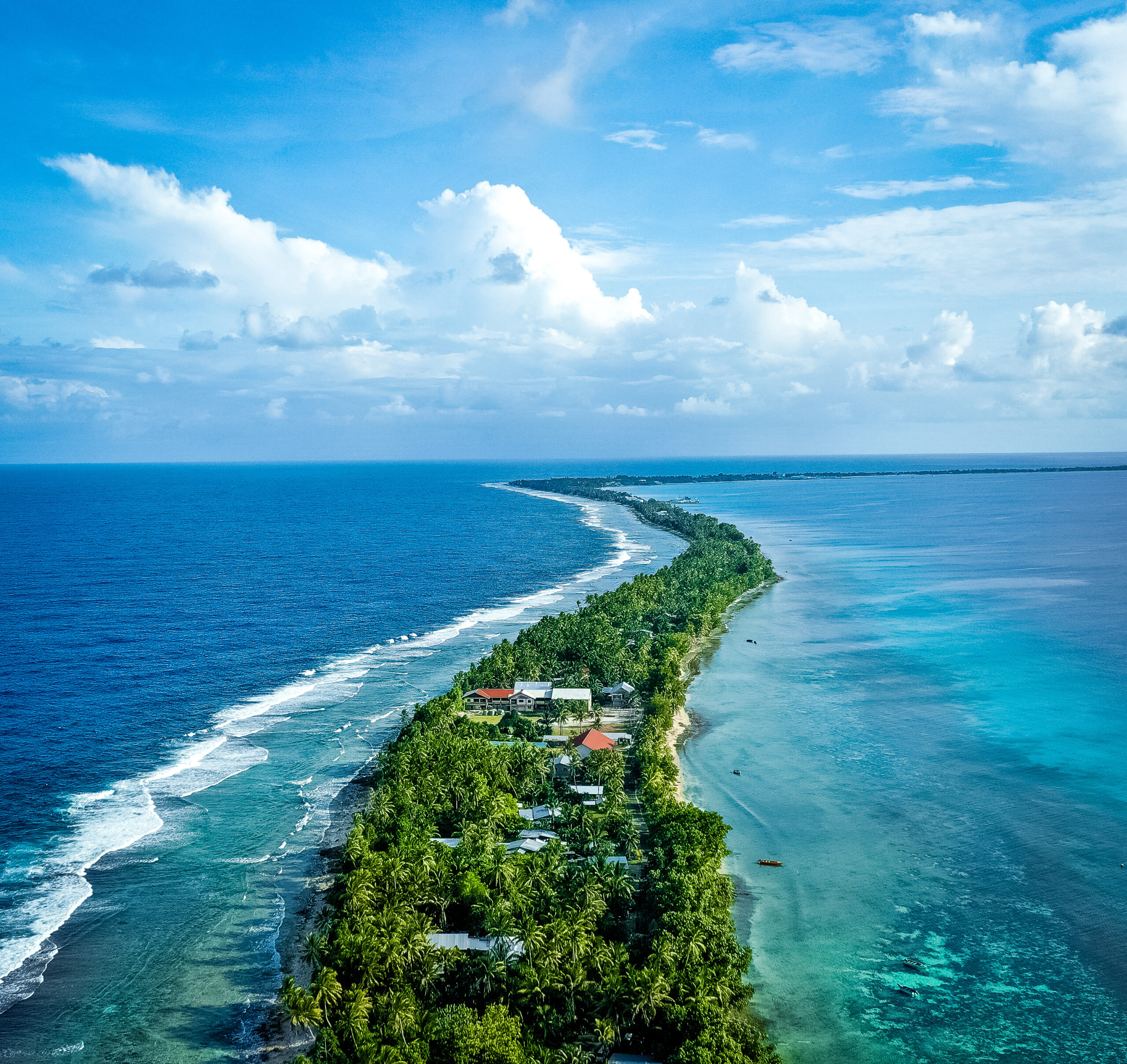Pacific Nations offer new diploma in resilience
In partnership with the Pacific Community (SPC), New Zealand’s Skills Consulting Group (SCG) has developed a qualification which equips Pasifika youth with the skills to defend their communities against the effects of climate change. The Pacific region is on the front line of the global climate crisis, and a healthy and prosperous future for its people relies on their resilience.
COP 26 was the big buzz at the end of last year, but the noise began to fizzle out when climate scientists stated the real impact of the promises made by World Leaders. Not enough, was the general consensus. 2022 studies show that sticking to the targets set at COP 26 will still see global temperatures rise by 2C by the end of the Century – and we have just a 6 – 10% chance of keeping them below 1.5C.
The nations that will be hit first, and hardest, are our island cousins in the Global South. To address this, Skills Consulting Group and the Pacific Community have been working together to design a new, Pacific accredited Diploma in Resilience to fill in skills gaps among Pacific school leavers and equip young people for the environment of the future.
“Climate change is a reality for everyone all over the world, but it’s the Pacific that’s on the front line,” says leading consultant Joseph Robinson, from Skills Consulting Group. “An estimated 9.2 million people have been affected by natural hazards in the Pacific since 1950, and the number of disasters every year is only projected to rise. That’s why the Pacific needs to be prepared, and that’s what these qualifications do – they train people how to help communities adapt to climate change and disaster.”
Since 2019, Robinson has worked alongside SPC to make the Diploma in Resilience a reality, pushing through COVID-19’s disruption.
“Our partnerships and collaboration to support growth in resilience education recognises Pacific solutions for Pacific people to spur professionals in climate resilience. This diploma will open opportunities to for graduates to become change agents within their communities as they deal with climate change impact,” Melinda Mathers, PACRES project – SPC TVET Coordinator said. “The PACRES project has valued regional organisation and institutions sharing information, results and knowledge about climate action to strengthen the Pacific’s capacity to intervene, mitigate and adapt.”
Robinson and the global markets team from Skills Consulting Group worked with ten pacific countries to develop the diploma: Fiji, Samoa, Tonga, Papua New Guinea, Kiribati, Vanuatu, Solomon Islands, Marshall Islands, Tuvalu, and Niue. Experts based in Australia, New Zealand and Japan were also involved.
“The countries we are working with spread across 25 million square km of the Pacific,” says Robinson. “With those distances and the borders closed, we had to identify how we could bring people together for discussions; virtual group sessions were the solution. We also held one-to-one calls, and collected written feedback to make sure everyone had the chance to have their say.”

Joe Robinson from our Global Markets team in Fiji launching the new Diploma in Resilience Certification
Regardless of challenges abound, the result is world class: Pacific focussed accreditation that aligns with the core needs of Pacific communities who rely on industries such as forestry, agriculture, coastal management, fisheries and tourism.
The Diploma is the first of its kind in the region; its associated four qualifications create a pathway all the way from school leaver up to just below degree level.
The Level 2 Certificate is a foundational qualification. Intended for people who have no previous knowledge or experience of resilience, it builds introductory concepts. The Level 4 Certificate is an operational qualification – made for “boots on the ground” in the community. Level 5 is a Diploma, and ratchets up the complexity. Graduates will get a big picture view of climate change adaptation and disaster risk reduction. Finally, the Level 6 Diploma increases the breadth and depth of resilience building tools, including project management and adaptation.
Aligned with the qualifications being accredited in June 2022, providers are currently pulling together course materials with a view of launching the qualification later this year. The new Resilience qualifications are an excellent example of Pacific nations collaborating to support each other to deliver both better futures and better outcomes for their people in the face of climate change.
